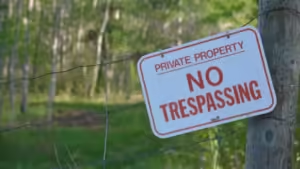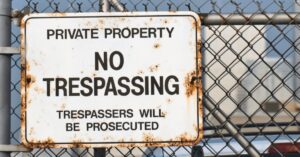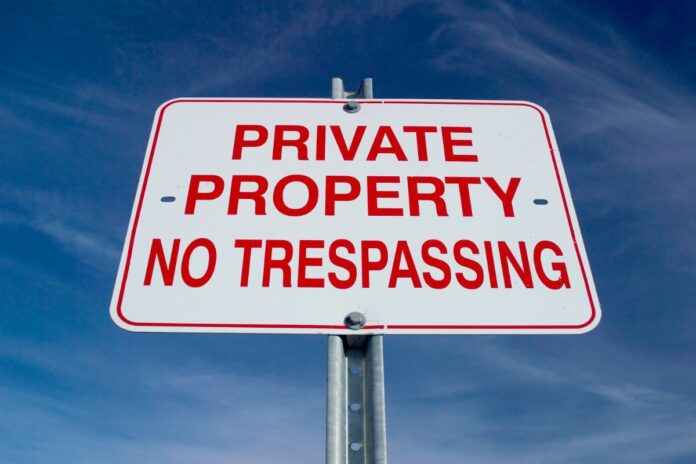
Introduction
Trespassing laws play a crucial role in safeguarding property rights and ensuring the security of landowners. Recent changes in these laws have prompted a reevaluation of how property owners manage and enforce their rights. This article delves into the recent modifications in trespassing legislation, their implications for property owners, and practical steps to adapt to these changes.
Recent Changes in Trespassing Laws
- Expansion of Trespassing Definitions
Recent legislative changes have broadened the definition of what constitutes trespassing. Historically, trespassing was limited to physical entry onto private property. However, new laws now include unauthorized digital access, such as hacking into private networks or systems. This expansion aims to address modern security concerns but also introduces complexities for property owners in both physical and digital realms.
- Enhanced Penalties for Repeat Offenders
Many jurisdictions have implemented stricter penalties for repeat trespassers. Previously, penalties might have been relatively lenient, but new laws impose harsher fines and extended jail sentences for individuals with multiple trespassing convictions. This change is intended to deter habitual offenders and provide greater protection to property owners.
- Increased Rights for Property Owners
Recent amendments have also enhanced the rights of property owners. For example, some regions now allow property owners to use surveillance technology more freely to monitor and document trespassing incidents. Additionally, property owners may have more authority to pursue civil litigation against trespassers, seeking damages for any harm caused.
- New Legal Protections for Vulnerable Properties
Properties that are deemed particularly vulnerable, such as those housing sensitive materials or critical infrastructure, receive additional legal protections. Trespassing laws now include provisions for heightened security measures and stricter penalties for unauthorized access to these high-risk areas.
Impact on Property Owners
- Increased Security Measures

With the broadening of trespassing definitions and enhanced penalties, property owners are likely to invest more in security measures. This could involve installing advanced surveillance systems, employing security personnel, or utilizing smart technology to monitor their property. These investments, while potentially costly, are crucial for ensuring compliance with new laws and protecting property.
- Legal and Financial Implications
The heightened penalties for repeat offenders and increased rights for property owners have significant legal and financial implications. Property owners may find themselves better protected against trespassers but must also be prepared for potential legal costs associated with enforcing their rights. This includes potential expenses for pursuing civil litigation and the need for legal advice to navigate the evolving legal landscape.
- Changes in Enforcement Strategies
Property owners may need to adjust their enforcement strategies in response to recent legal changes. This could involve revising their approach to reporting and documenting trespassing incidents, as well as working closely with law enforcement to ensure that new regulations are properly enforced.
- Adaptation to New Legal Frameworks
Staying informed about and adapting to the new legal frameworks is essential for property owners. This includes understanding how expanded definitions of trespassing might affect their property and ensuring that their security measures align with the latest legal requirements.
Practical Steps for Property Owners
- Review and Update Security Policies
Property owners should review and update their security policies to align with recent changes in trespassing laws. This might involve revising protocols for handling unauthorized access, updating surveillance systems, and ensuring that all security measures are compliant with current regulations.
- Consult Legal Professionals

Consulting with legal professionals can help property owners navigate the complexities of new trespassing laws. Legal experts can provide guidance on how to adjust security practices, handle legal disputes, and ensure compliance with updated regulations.
- Educate Staff and Tenants
Educating staff and tenants about the recent changes in trespassing laws is crucial. Ensuring that everyone involved in managing the property understands the new regulations and their implications can help prevent potential legal issues and enhance overall security.
- Stay Informed
Keeping abreast of ongoing legal developments and changes in trespassing laws is vital. Property owners should regularly review legal updates and consider joining industry groups or associations that provide information and resources related to property management and security.
Conclusion
The recent changes in trespassing laws have brought about significant shifts in how property owners must manage and protect their assets. By understanding these changes and taking proactive steps to adapt, property owners can better safeguard their properties and navigate the evolving legal landscape. Implementing enhanced security measures, consulting legal professionals, and staying informed are key strategies for effectively responding to these new regulations and ensuring compliance.




